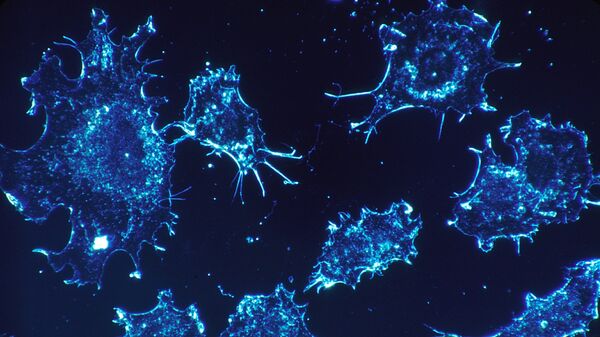A new report released Wednesday by non-profit group Environmental Working Group (EWG) found glyphosate, an active ingredient in Monsanto weed-killing products with links to cancer, in various popular breakfast cereals and foods marketed to children.
"Glyphosate… was found in all but two of 45 samples of products made with conventionally grown oats," the study reads. "Almost three-fourths of those samples had glyphosate levels higher than what EWG scientists consider protective of children's health with an adequate margin of safety."
The study indicated that any product with a glyphosate level of more than 160 parts per billion was labeled unsafe. However, by the US Environmental Protection Agency standards, the legal limit regarding glyphosate in food is five parts per million (5,000 parts per billion), according to Business Insider.

Using its own strict standards, some of the foods the group determined unsafe included Quaker Old Fashioned Oats, Cheerios, Lucky Charms, Kellogg's Cracklin' Oat Bran, Quaker Dinosaur Egg Instant Oats, Great Value Instant Oats and Back to Nature Classic Granola.
Scott Faber, vice president of government affairs at EWG, told CBS News that the group is "very concerned that consumers are eating more glyphosate than they know."
Following the release of the study, companies General Mills and Quaker shot back, asserting that their products are safe for consumption and they they adhere to regulatory safety standards.
"Our products are safe and without question they meet regulatory safety levels. The EPA has researched this issue and has set rules that we follow, as do farmers who grow crops including wheat and oats," General Mills, the company behind Lucky Charms and Cheerios, told website Fast Company. "We continue to work closely with farmers, our suppliers and conservation organizations to minimize the use of pesticides on the crops and ingredients we use in our foods."
As for Quaker, they pulled out the receipts, citing their more than 140 years in the business.
"Quaker does not add glyphosate during any part of the milling process. Glyphosate is commonly used by farmers across the industry who apply it pre-harvest," Quaker explained to Fast Company. "Once the oats are transported to us, we put them through our rigorous process that thoroughly cleanses them (de-hulled, cleaned, roasted and flaked)."
"Any levels of glyphosate that may remain are significantly below any regulatory limits and well within compliance of the safety standards set by the Environmental Protection Agency (EPA) and the European Food Safety Authority (EFSA) as safe for human consumption," the statement continued.
The report comes days after a California jury awarded $289 million to a California groundskeeper who argued that Monsanto's Roundup pesticide product, which contains the ingredient glyphosate, caused him to develop cancer after he used it regularly for two years, according to reports.
Monsanto told local Chicago news station Fox 32 that it planned to appeal the decision. Responding to EWG's report, the Missouri-based company released a statement Wednesday saying that the the group "is spreading misleading information."
"Even at the highest level reported by the EWG (1,300 [parts per billion]), an adult would have to eat 118 pounds of the food item every day for the rest of their life to reach the EPA's limit," the statement reads. "Of course, nobody eats close to that much food! Using oatmeal as an example, 118 pounds would equal 228 servings or 3,658 percent of the daily recommended intake of fiber. These numbers translate to 9 ½ servings every hour without sleep for a person's entire life."
Although the study has been disputed by experts, organic farmer Andy Johnson told Sputnik Radio on Thursday that it will inevitably affect farmers' ability — not to say willingness — to use glyphosate on crops. "It can and it will [affect farming methods]."
Per the Insider, concern over the link between glyphosate and cancer was first highlighted after the World Health Organization's International Agency for Research on Cancer put out a statement in 2015 that suggested the pesticide was a "probable carcinogen." However, it was later found that the IARC's conclusions were edited in a manner to make glyphosate appear more harmful than it is.





